Intro
My interest in this topic is mainly based on my family history. My great-grandfather (Karl Gustav Wünsch) was also a soldier on the eastern front in WWII but unlike the two, we do not know to this date if he got killed or if he was a PoW or even died in a battle at Festung Breslau. The only thing that is certain about him is that he is missing since January 1945. That knowledge drew my attention to this very particular topic of German PoWs since there is not so much research done on this field from scientists [1]. But overall, it is generally known, that PoWs in the USSR were treated differently than the ones in the US [2]. It is also known that USSR PoWs were held longer as Prisoners of War [3]. Additionally, there was a lot of research done on SS members and war crimes.
With this quote, I want to start my introduction about my topic which is about two German World War II soldiers that were captured by the allies and held as Prisoners of War between 1944 and 1945. Therefore, I decided, that I mainly wanted to focus on the USA and the USSR since they were the two superpowers after the war. As well as I decided to compare two different solders that fought on two opposite fronts – west (Günter Gräwe) and east (Werner Brähler). After doing some research on my topic I found these two very interesting people, but I also discovered that Mr. Brähler had already passed away, which lead me to just having one of them being interviewed by me. Luckily, Werner Brähler had a website where I could easily engage with his biography.
In Günter Gräwe´s case, I was lucky to meet him in person and to conduct several interviews in three days with him. Also, he gave me all the pictures used in this assignment which I use in this assignment in Mr. Gräwe’s section.In Werner Brähler’s case, I had to contact Carsten Schmitt. He is the one in charge of the website and also an old friend of Brähler. He gave me additional information about Werner Brähler that was not conducted in the book. He helped me understand Brähler better and also gave me a picture of the relationships between Brähler, the Russians, and the Estonians.
My thesis follows: “Did Günter Gräwe’s and Werner Brähler’s view of the allies change and if so why?”. This is symbolizing my topic and therefore I think that it is fitting for my topic. The question I raised on the front page will be answered during the Biographies of Günter Gräwe and Werner Brähler. Therefore, I even structured their Biographies in important parts of their lives.
I will analyze the exact treatment which will also help me with the thesis because the treatment is linked to the viewpoints both had. Here I will also take a look at if the views changed before, during, and after their imprisonment by the allies, and if so why. Therefore, I must also ask some personal questions about the political view both had during the 3rd Reich and others. I also will analyze how both countries followed the Geneva Convention from 1929 which stated how you should treat PoWs correctly. I might have to add that the USA among other nations signed that, but the USSR never agreed to all of it and therefore never signed it.
This topic is also linked to border crossing even though I must say that this kind of border crossing is not usual since it was forced and not willingly. My paper is discussing border crossing after or during World War II as Prisoners of War. Both Günter Gräwe and Werner Brähler crossed multiple borders in their lives during and after the war. Gräwe was in France, Latvia, England, and the US. Brähler on the other hand was in Russia, Poland, and Estonia.
Günter Gräwe`s Biography

Mr. Gräwe was born on 04/14/1926 in Lüdenscheid- North Rhine-Westphalia. His parents lived a humble life and they were not wealthy. From 1932 until 1940 Mr. Gräwe was in a West und Knappschule he also joined the Jungvolk (German youngsters in the Hitler youth) when he was 10 years old. Consequently, he was transferred to the Hitler youth program when he turned 14 years old. Gräwe described how he liked the activities that the Jungvolk and Hitler youth offered. He then went on and attended commercial school from 1940 until 1942. He wanted to be a merchant later on. For background knowledge, I have to add that his father died in 1941 during his Heimatsurlaubs. Gräwe personally was not influenced by that tragic event, thought his mother was distraught. Gräwe never thought of the soon-to-become enemies as a danger or even a threat to his countrymen.

On 1st October 1943 Gräwe voluntarily signed up to join the army. He joined the Army even though he was not forced to do that since his father died as a soldier. He did it to serve and protect his country as well as to show loyalty to his country and their leader. Gräwe was sent off to Latvia in a village called Dondangen, were he was trained on a tank (Panzer IV) for 7 months. There he learned how to get out of a tank what and where to hit the enemy and other things that were important in combat. On 10th May 1944, he was sent to join the western front. From now on he was in the 1. Panzer division that was located in Normandy, France. He told me that he has done and seen some cruel things that he did not want to recall.[4]
But I also gathered the information that Gräwe has never seen the paratroops that landed on D-Day (06/06/1944) because it was dark, but he added that the Germans were ready to fight the US and British paratroops and they were supposed to shoot every single one of them. On the other hand, he also told me that one evening his division was waiting on a cliff and they saw allied planes coming. They were getting ready to shoot those planes but then their corporal told them not to do so because those planes were just delivering food in packages to the allies and are therefore not the enemy to shoot at[5]. I could tell that Mr. Gräwe was proud of this because he told me that with a smile on his face and some tears in his eyes. But he also mentioned how he sometimes would hear people scream from the inside of a burning tank.
I know for certain that Gräwe fought battles in Falaise and Caen, France.

During combat Gräwe´s tank got hit and he had to climb out and run, while running he was wounded and brought to a field hospital in between Argentan and Falaise. He said that the US. Army was coming closer and closer until. Finally, on the 20th of August 1944, the Americans arrived at the field hospital and captured all the wounded German soldiers. Among them was Gräwe. They were told that they are from now on Prisoners of War (PoW) and that there is a transport tomorrow to a different place. The different place is going to be a military hospital in Southampton. He would remain there for one week until he got on the ship “Queen Mary I” the destination was the USA. During his journey on the ship, he was able to speak to other solders. They were giving 3 warm meals a day and everyone had a bed and there were all treaded fairly not like prisoners. After the ship reached Denver, Gräwe got on a train to Seattle (Washington) where he was sent to his camp Fort Lewis, which is still existing as an air force base for pilots. Its name today is Joint Base Lewis–McChord. In this camp, Gräwe said “You had three different political believes separated from one another. Those who were communists, Nazis, and democrats”[6]. Gräwe was held with other democratic members in the camp.
In the camp he said were no guards and the people that served and cooked food weren’t Americans they were German PoW’s as well. His daily routine in the camp was waking up, eating breakfast getting ready for the labor work which was harvesting, and go back around noon and go to bed. He even learned some languages in the camp since some soldiers had a degree in teaching, he learned English, French, and Spanish in the camp which would help Gräwe later on with his career. They all got paid 80 cents a day for their labor. After a couple of weeks in Fort Lewis, he got transferred to Montana, Idaho, and Arizona where he was supposed to pick apples, beets, and cotton in the field. In 1945 he got a job as a clerk in an army dispensary, but he was still supposed to return to the PoW Camp (Papago Park) in Phoenix near Tucson in Arizona, after working in the army dispensary. Gräwe also said that during his time in all these camps he was never treated incorrectly according to the Geneva convention from 1929. That states that you have to treat your PoWs fairly, without violence, and respect according to their age and rank that the camp there must be out of a dangerous zone and that the prisoners have to have access to medical and religious facilities. Gräwe pointed out that all those written Articles from the Geneva Convention were followed by the US and he realized that as soon as he was on the ship.
His family back in Germany at this time could have just dreamed about those things since food was rationed in Germany.[7]
In the summer of 1945 Gräwe was sent back on a ship he thought he would go back home to Germany right away, but he got proven wrong the ship went to the United Kingdom instead. In the UK Gräwe was sent to several camps here too to do some labor. The last one was a farm near Crewe where he helped the farmer out with harvesting. On 5th December 1947, he finally got sent back on a ship to Germany and was dismissed from the army as a soldier. January 1948 Gräwe continued school where he left off in 1942 and graduated in 1949. After that, he worked for the company Jürgen & Co. and got a promotion in June 1957 to export manager. Here he also had the benefit of knowing that many languages since he was able to learn them in Fort Lewis. [8]
A significant month for Gräwe and the Joint Base Lewis–McChord was October 2017 when Gräwe decided to visit his old camp 73 years after being imprisoned there. He got in contact with Marie McCaffrey who is the Executive Director of the website HistoryLink.org. Both McCaffrey and Gräwe then organized his trip to the base. Gräwe wanted to ride his bike from Seattle to California. The Police helped him in Seattle but advised Gräwe not to ride his bike that long especially regarding his age. Gräwe got on his bike and arrived on the base. He met the commander on the base which showed him around. Gräwe was able to tell him his story and also got the change to eat another well served meal at the base. Here Gräwe fell back in love with the country that gave him so much more than expected as a PoW and also as a person. He still feels deeply sorry for what he has done to the American Soldiers during WWII, but he also said that it was his duty and that he just did what everyone else did, which was fighting the enemy and not getting killed. Even though he killed Americans he never heard the soldiers calling him nasty words, not even on the ship Queen Mary I, since there were just Germans on that one. He received the best treatment possible and is thankful until his death for everything the Americans did. He even is planning another trip to visit another camp he was imprisoned and also wants to visit the camp in the UK. [9]
Since Gräwe is the founder of Gräwe company, he pointed out that the PoW time had woken up a dream about him being a founder of an own company and that everything he learned during his time he learned in the USA. He also withdrew his membership from the church since there was no one there to help him during his time in Normandy. However, he still financially aids the church regarding children living on the streets or those who are in absolute poverty.
Werner Brähler’s Biography
Mr. Brähler was born on 18th April 1925 in Witten – North Rhine-Westphalia. He also joined the Jungvolk and Hitler youth. He said that all the young people were loyal towards the Hitler-Regime since they grew up in it. They never questioned anything, because they thought they’re not doing anything wrong, unforgiven, and unforgettable. They believed in the system and their guidance[10]. From April to June 1943 Brähler was working in the RAD in Lendringsen – Sauerland. The RAD was the Reich Labor Service, it was a service to prevent unemployment. Brähler got a letter 1943 3 days before his 18th birthday to join the RAD. After his arrival, Brähler had pre-military training. For him, all of it was known since he had experience from his time in the Hitler Youth. Additionally, he was a holder of an SA-Sportabzeichnis. So, he knew how to shoot guns and handle grenades already. The food was surprisingly good for the time since it had been five years since the war started. In his time at the RAD Brähler witnessed the demolition of the Möhne- und Edertalsperre on 17th May 1943 from the Royal Air Force. Brähler was recruited for aid work in the area. He moved dead humans and animals. He said himself, that this was the first time he was confronted with death[11].
After he got 3 days off to visit his parents Brähler received a letter telling him that he is now a soldier in the Wehrmacht. On 19th July 1943, he took the train to Jermer (Jaromêr) – Czechoslovakia to join his grenadier battalion 97. But that was just a stop for him to get his uniform. Brähler would later be trained to become an officer. The training he said was quite hard and exhausting[12]. They also tested everyone’s limits and let them feel what power over a person means. Brähler said that he had 6 months of recruiting time that he had to pass. After that, another 6 months of sergeant school after that he was supposed to have 3 months of front training. In this time, he had to learn all the practical and theoretical parts such as gun knowledge, greeting higher-ranked soldiers, and how to overcome your limits (physically and mentally). He learned the exact position a soldier has to have if he does not want to get hurt by a grenade and basic survival during his training. After a while they got moved to Josefstadt here they had to prove several points such as intelligence, ambition, good general knowledge, pedagogical skills, sense of justice, incorruptibility, and the most important one being he had to fit into the picture of appearing to be a pure German soldier, Brähler stated. [13]
They got moved again to Saarlois – Saargebiet here they attended sergeant school where he learned all the commandos for an attack, regroup, and retreat. He also had pre-operation training and simulated war situations at different times and weather conditions. After three months of this training, Brähler got promoted to private. [14]
In the spring of 1944, Brähler got 10 days off to visit his family. After that, a harder time in the school started, they were supposed to build bunkers underneath the earth and also night shifts started to begin[15]. They also had a Russian tank in their school for simulation[16]. Brähler’s idol was his cousin. He was a captain of the infantry in Saarlouis. He had received several medals and honors for the combats he had fought in. His cousin’s highest rank was major, shortly before the war ended[17]. From 16th June until 07th July 1944 Brähler was in Herford. Here he trained future soldiers[18]. In the end of July, they prepared to join the Wehrmacht on the eastern front. So, they marched to the 126. Infantry Division in Pleskau (Pskov), which was in the northern part of the Russian front.[19] He got placed into the 424 regiment II. A battalion of the 5th company. On his first day, the Russian attacked with mortars. He said that during the nights they had operations (Heldenklau in German) where they captured soldiers from the opposite army to capture them. Brähler wanted to join that operation on his first day but wasn’t accepted, because he just arrived and had no experience [20]. On the 13th of July 1944, Brähler and his fellow soldiers got transported to another village (Rosenau) due to the advancement of the Russian Army. On 15th July 1944, they arrived safely in Rosenau. The Russians primarily attacked the Latvian SS-Division. Around that time Brähler realized that the Russian army is superior. He also mentioned that the soldiers were demoralized and knew that unlike the news from home there is not a single chance to win this battle. Therefore, some even deserted because they did not want to die in a battle that cannot be won.
“Eye for an eye and tooth for a tooth “is the exact situation you have in a battle on the eastern front Brähler pointed out. On the 25th Brähler got nearly killed but he left his position and after he came back to his position his comrade was dead due to a grenade that got thrown into their hideout. Like Günter Gräwe, Brähler withdrew his membership from the church in July 1942, even though his family was deeply religious (catholic). However, he also mentioned that the deaths of his comrades were not worth quotes from the bible spoken by a priest. Brähler never understood why people would use the term “Heldentod” (heroic death) for the death of a soldier since in his point of view it was an unnecessary death. In his family, nine members died in WWII and Brähler faced death every single day on the eastern front. [21]
He pointed out that he never had to starve on the eastern front because he got those packages with food supplies, even warm food was delivered to them. In summer 1944 Brähler was able to get a good picture of the situation, but even though all those circumstances he still hoped that they might be able to win the eastern front due to the announced new weapons that should get there soon. He also realized how surreal the propaganda was and not true at all [22] .
17th August 1944, Brähler and his comrades were near the village Birsen when they received the order to shoot at civilians as well as the Russians. Brähler did not do so when he went inside a house where an old married couple lived. He told them to get out right now and leave the city immediately[23]. Brähler received the Iron Cross II. Class because of his combat and service on the front.[24] From October 1944 until February 1945 Brähler was a cadet at the cadet school V in Posen. In December 1944 Brähler got a letter from his parents after he got promoted to lieutenant, saying that the city (Witten) got bombed and that they are alive. Brähler got time off to visit his parents, when he arrived at in Witten, he said it was unrecognizable and a lot was destroyed including their house. He also pointed out that the “total war” Dr. Goebbels promised has come to his hometown now.[25] He returned to Posen on 1st January 1945. In January Brähler fought with his comrades to keep Posen, Germany since it was an important city for the eastern front[26]. Brähler had to escape Posen with his comrades due to the superior power of the Russian Army, so they fled until they got captured on 31st January 1945 in Seefeld by Frankfurt Oder.[27]
After the surrender, Brähler had to open his jacket and the Russian soldiers realized that he was a lieutenant with some medals. The soldiers took the medals as they did with others since they had a lot of SS-, SA- and HJ medals already. He also had to give them his payment book, besides that they did not get beaten up or anything like that since that was the propaganda, that Russians are a subhuman race. After they took the medals from all the 20 soldiers, the Russians pinned them on their uniforms, Brähler was disgusted by that behavior.
Brähler had to switch boots with a Russian officer. Brähler refused to do so and the soldier told him to follow his orders or he will have a bullet in-between his eyes, so after some comrades also convinced him he did the switch but the problem was that the boots he received were too short for him. After that Brähler and his comrades went to a house where they had to go through the whole process of getting searched again his time for gold, silver, and platinum. Brähler pointed out how the wedded men suffered since they all had to give their wedding rings to the Russians some even denied and swallowed their ring. For that action, they got shot. [28]
The soldiers also tore apart pictures if they found some in front of the person the picture belonged to. After that, they had to march for some miles until they reached a house. Here they were locked up in the basement with other German soldiers. The German soldiers here received violence and starvation since they just got the rest from the Russian soldiers and that the first “food” Brähler received after his capture was two days after he got thrown into the basement. Brähler had to stay two more days and night until he went somewhere else. The only nutrition they all received was some pieces of bread. After that Brähler was marching with 70 other PoWs to whoever knew which will be the Dembsen-Lager in Posen.[29]
During his march there he got beaten and people said nasty things to him, most of them where Russians and Polish. During his march there they did a break in a farmhouse here Brähler received 450g of bread daily and some water. Twice a day they had to step outside and count out loud during this process the Russian soldiers controlled their rooms and beds for weapons and hidden items. During his time Brähler heard a lot of gunshots that were shot to execute SS soldiers that had the well-known blood group tattoo. Brähler also mentions that he got treated differently due to his rank in the Wehrmacht. For that other soldiers disliked him and also got jealous. After 3 days of rest at the farmhouse, they moved on to reach their final destination for that they had to march ten to fifteen kilometers a day. They were allowed to pee ones or twice a day since they had to stop marching for that. They were given a piece of bread daily and no water unless they found a water source.
After just two days of marching a hand full of men couldn’t keep up and walk so, they were shot and pushed onto the sidewalk. On the streets, they saw dead, raped women that had barely any clothes on they all got murdered by a knife, shot, or other absurd things. All PoWs just felt disgusted and hatred towards the Russians. During their march deeper into the old eastern front, Brähler said you could feel how the Polish and Russian where seeking revenge. They rested again this time in a Pig barn. Here ten soldiers got thrown into one barn to rest for the night, which barely fit four to five pigs before.[30]
On 17th February they reached their destination, Brähler will stay here until 18th April the same year. In the camp, Brähler had to share his bed without a mattress with another person. He was in a barrack with a lot of Hungarians. The camp was surrounded by barbwire with was also electric so no chance of escaping was given. One day after his 20th birthday he got transferred to the Police Camp in Posen. He stayed there until 20th August 1945. The conditions were mostly the same here.
On the 20th of August 1945, Brähler got deported to the officer PoW camp in Estonia until 20th February 1946. Here 25 to 30 men died every month due to hygienic reasons. Here Brähler got more and better food which held him alive. The winter in 1945 was a very harsh one so Brähler got assigned to fetch wood that was around 14 kilometers away. The temperature was around -30 to -25 grad Celsius. In this camp they were able to play and sing but also to read whatever they wanted to they also got introduced to all those composers and authors that were forbidden in the 3rd Reich. Brähler also mentions that the food was sent from the U.S. Army because the Russians were not able to give such things to the German. [31]
On 20th February 1946 until April 1948 Brähler was in a Camp in Tartu (Dorpat), where he was greeted by Estonians and that was the first time since his capture that he received kindness. On 5th of April 1946, Brähler was able to send his first letter as a PoW to his parents, he received an answer 20 months after the send his first card from the international red cross. Here Brähler was able to sing again they also had a theatre in the camp. The PoW’s helped the Estonians to rebuilt their city. Therefore, they were giving food from them. Estonians told Brähler how they got suppressed by the Russians, but they were not the only ones the Latvians and Lithuanians did too. The Estonians felt with the PoW’s and were waving to them when they had to return to their camp, which was forbidden actually. The Estonians asked Brähler if there is a new war coming soon, his impression of that was that they want to get freed from Russian suppression. [32]
In the camp, during time Brähler’s clothing ripped more and more. He was given soviet soldier clothing instead which did not do its good, as his ripped clothes were still warmer. During his time in camp Brähler was able to attend a play in the theater that was located in the camp. He said he was glad that they also had some more human guards and officers there. The camp Brähler was in was no longer in use so he had to get somewhere else to another camp. From April 1948 until December 1949 he was in Kohtla-Järve. Here the food supplies were not the same. The PoWs hunted dogs and ate them. Brähler also mentions how everyone’s teeth were getting bad since there was no way of them getting all these important vitamins. In December 1949 a lot of PoW’s where able to leave the camp to return to Germany Brähler had to wait a little longer until he got transported as well. [33]
He got on a train until Brest- Belarus and after a stop here back to Posen. Here he heard a Polish say the German treated us like dogs, but the Russians treated us like wolfs. After that, they got on another train to Frankfurt (Oder). Here he was able to inform two family members about his return home. He was put into the camp Frankfurt-Gronenfelde (Lager-Nr. 69). On 16th December 1949, he arrived in Friedland. He said that it was way better than celebrating his birthday and Christmas together. [34]
At his arrival, he received 80 DM, medical care and after that, he was sent to the Secret Service for further questioning. The next day he got onto another train going home. It was 4.30 a.m. when Brähler got out of the train at Dortmund central station. His father was waiting for his arrival. Both hugged one another tightly and cried. At 7 a.m. he took the train with his father back home and arrived here safely. [35]
Brähler’s weight was 60 kg and he was 1,75 m tall so he was malnutritional. Brähler returned to Estonia and also had some Estonian friends later on. He always was thankful for all the things the Estonians did for the German PoWs even though it was forbidden and illegal. He also disliked Russians and turned down offers from Russians concerning his book on his website (www.ausmeinerzeit.de) because he did not trust them to tell the truth. After the Bundeswehr was formed, he was asked if he wants to join them, he declined politely, he never wanted to fight in a war again. Brähler also was in several comradeship groups active until some other members had some opinions and points of view Brähler did not share and also did want to engage with so he withdrew his membership. He also got a monthly payment from the government for all the things he had to experience during his imprisonment. He also did not know until a couple of years after the imprisonment ended of all the crimes such as the gas chambers. Werner Brähler died at the age of over 90 years old, surprisingly since he was in such good mental and physical shape. Brähler had no children during his marriage with his beloved wife. [36]
Conclusion
In this assignment, I was analyzing the changes of views Günter Gräwe and Werner Brähler had and how they got treaded in the camp or gulag they were sent to.
During my research, I had some struggles finding more out about Günter Gräwe since there are things he does not want to share, which made it difficult for me to sometimes see clear patterns in his relationship with the USA. But it is quite clear to me that his relationship with the USA changed drastically from being the enemy that must be killed under every circumstance to the country and people he calls” his first and final love” (Quote from the sign-on bike). He also has more than surprised how he got treated which such mercy and respect. He also never had to starve or share his bed with another person. He received money for his labor and was able to buy additional objects and food.
In Werner Brähler’s case, he slightly changed his view towards Russians from the enemy towards disliked and mistrusted. But I must say that Werner Brähler always differed between Estonians and Russians since he experienced how they treated him differently. The Russians gave Brähler no money for his labor and he also had to share his bed with another person or even no bed at all. Also, he was never able to buy things. He always had to trade products among the Estonians or got some extra bread for his good work.
What each share is the horrible experience of being imprisoned by the superior powers and held for some years under different conditions.
I would like to do more research regarding other PoW’s that may have similar experiences. But I might have a hard time finding more people that want to talk to me like Günter Gräwe who is still clear minded or Werner Brähler who wrote all of it down so that people like me would be able to have a peak into the life of a Prisoner of War. I personally think it is very important to give those people a voice since most of them haven’t even shared their story with relatives or close family since it is easier for people to talk to strangers. A lot are afraid to be judged for what they thought at the time was the right thing to do. But now we know that it was wrong but that is the benefit of knowing how it ends and how it will be seen by the next generations. Both did not know of the crimes committed by the Nazis until a couple of years after their return to Germany.
[1] Christian Hardinghaus, Die Verdammte Generation Gespräche mit den letzten Soldaten des Zweiten Weltkriegs (Berlin, Germany: Europa Verlag, 2020), 9-11.
[2] Christian Hardinghaus, Die Verdammte Generation Gespräche mit den letzten Soldaten des Zweiten Weltkriegs (Berlin, Germany: Europa Verlag, 2020), 251.
[3]Dr. Hütter Hans Walter. and Eva Rommerskirchen, Kriegsgefangene = Voennoplennye: Sowjetische Kriegsgefangene in Deutschland, Deutsche Kriegsgefangene in der Sowjetunion (Düsseldorf, Germany: Droste, 1995), 7-9 .
[4] Interview I Günter Gräwe 13th August 2020
[5] Interview II Günter Gräwe 13th August 2020
[6] Interview III Part I Günter Gräwe 14th August 2020
[7] Interview III Part II Günter Gräwe 14th August 2020
[8] Interview III Part II Günter Gräwe 14th August 2020
[9] Interview IV Günter Gräwe 15th August 2020
[10] Werner Brähler, “Werner Brähler – Aus Meiner Zeit,” Werner Brähler – Aus meiner Zeit, accessed September 19, 2020, http://www.ausmeinerzeit.de/, 11.
[11] Werner Brähler, “Werner Brähler – Aus Meiner Zeit,” Werner Brähler – Aus meiner Zeit, accessed September 19, 2020, http://www.ausmeinerzeit.de/, 37.
[12] Werner Brähler, “Werner Brähler – Aus Meiner Zeit,” Werner Brähler – Aus meiner Zeit, accessed September 19, 2020, http://www.ausmeinerzeit.de/, 49.
[13] Werner Brähler, “Werner Brähler – Aus Meiner Zeit,” Werner Brähler – Aus meiner Zeit, accessed September 19, 2020, http://www.ausmeinerzeit.de/, 76.
[14] Werner Brähler, “Werner Brähler – Aus Meiner Zeit,” Werner Brähler – Aus meiner Zeit, accessed September 19, 2020, http://www.ausmeinerzeit.de/, 89.
[15] Werner Brähler, “Werner Brähler – Aus Meiner Zeit,” Werner Brähler – Aus meiner Zeit, accessed September 19, 2020, http://www.ausmeinerzeit.de/ 90.
[16] Werner Brähler, “Werner Brähler – Aus Meiner Zeit,” Werner Brähler – Aus meiner Zeit, accessed September 19, 2020, http://www.ausmeinerzeit.de/ 94.
[17] Werner Brähler, “Werner Brähler – Aus Meiner Zeit,” Werner Brähler – Aus meiner Zeit, accessed September 19, 2020, http://www.ausmeinerzeit.de/ 95-96.
[18] Werner Brähler, “Werner Brähler – Aus Meiner Zeit,” Werner Brähler – Aus meiner Zeit, accessed September 19, 2020, http://www.ausmeinerzeit.de/ 112.
[19] Werner Brähler, “Werner Brähler – Aus Meiner Zeit,” Werner Brähler – Aus meiner Zeit, accessed September 19, 2020, http://www.ausmeinerzeit.de/ 116.
[20] Werner Brähler, “Werner Brähler – Aus Meiner Zeit,” Werner Brähler – Aus meiner Zeit, accessed September 19, 2020, http://www.ausmeinerzeit.de/ 119.
[21] Werner Brähler, “Werner Brähler – Aus Meiner Zeit,” Werner Brähler – Aus meiner Zeit, accessed September 19, 2020, http://www.ausmeinerzeit.de/ 120- 124
[22] Werner Brähler, “Werner Brähler – Aus Meiner Zeit,” Werner Brähler – Aus meiner Zeit, accessed September 19, 2020, http://www.ausmeinerzeit.de/ 142.
[23] Werner Brähler, “Werner Brähler – Aus Meiner Zeit,” Werner Brähler – Aus meiner Zeit, accessed September 19, 2020, http://www.ausmeinerzeit.de/ 146.
[24] Werner Brähler, “Werner Brähler – Aus Meiner Zeit,” Werner Brähler – Aus meiner Zeit, accessed September 19, 2020, http://www.ausmeinerzeit.de/ 149.
[25] Werner Brähler, “Werner Brähler – Aus Meiner Zeit,” Werner Brähler – Aus meiner Zeit, accessed September 19, 2020, http://www.ausmeinerzeit.de/ 215.
[26] Werner Brähler, “Werner Brähler – Aus Meiner Zeit,” Werner Brähler – Aus meiner Zeit, accessed September 19, 2020, http://www.ausmeinerzeit.de/218 – 237.
[27] Werner Brähler, “Werner Brähler – Aus Meiner Zeit,” Werner Brähler – Aus meiner Zeit, accessed September 19, 2020, http://www.ausmeinerzeit.de/ 239- 301.
[28] Werner Brähler, “Werner Brähler – Aus Meiner Zeit,” Werner Brähler – Aus meiner Zeit, accessed September 19, 2020, http://www.ausmeinerzeit.de/301 -302.
[29] Werner Brähler, “Werner Brähler – Aus Meiner Zeit,” Werner Brähler – Aus meiner Zeit, accessed September 19, 2020, http://www.ausmeinerzeit.de/303- 310.
[30] Werner Brähler, “Werner Brähler – Aus Meiner Zeit,” Werner Brähler – Aus meiner Zeit, accessed September 19, 2020, http://www.ausmeinerzeit.de/303- 310.
[31] Werner Brähler, “Werner Brähler – Aus Meiner Zeit,” Werner Brähler – Aus meiner Zeit, accessed September 19, 2020, http://www.ausmeinerzeit.de/314- 356.
[32] Werner Brähler, “Werner Brähler – Aus Meiner Zeit,” Werner Brähler – Aus meiner Zeit, accessed September 19, 2020, http://www.ausmeinerzeit.de/364- 368.
[33] Werner Brähler, “Werner Brähler – Aus Meiner Zeit,” Werner Brähler – Aus meiner Zeit, accessed September 19, 2020, http://www.ausmeinerzeit.de/372.- 452.
[34] Werner Brähler, “Werner Brähler – Aus Meiner Zeit,” Werner Brähler – Aus meiner Zeit, accessed September 19, 2020, http://www.ausmeinerzeit.de/452- 453
[35] Werner Brähler, „Werner Brähler – Aus Meiner Zeit,“ Werner Brähler Brähler – Aus meiner Zeit, accessed September 19, 2020, http://www.ausmeinerzeit.de/453-454.
[36]Werner Brähler, „Werner Brähler – Aus Meiner Zeit,“ Werner Brähler – Aus meiner Zeit, accessed September 19, 2020, http://www.ausmeinerzeit.de/454- 457.




















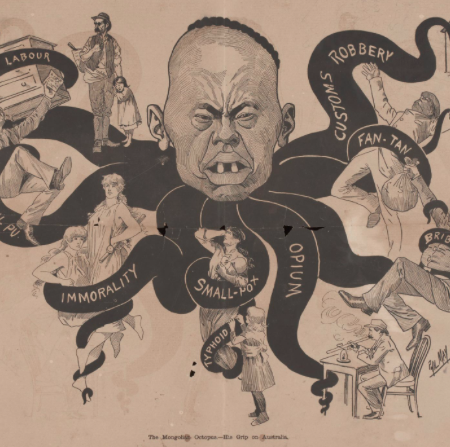


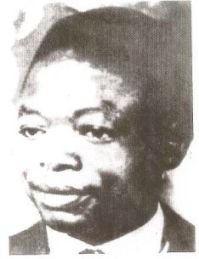
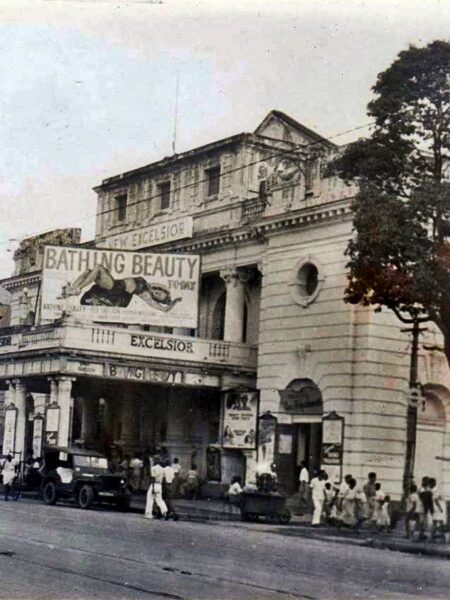
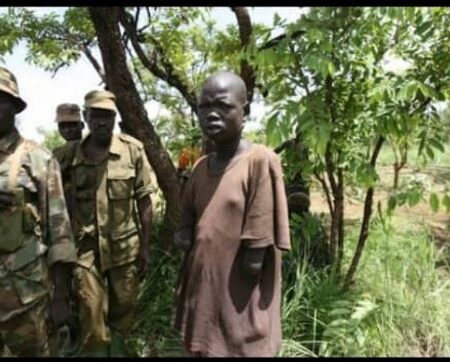
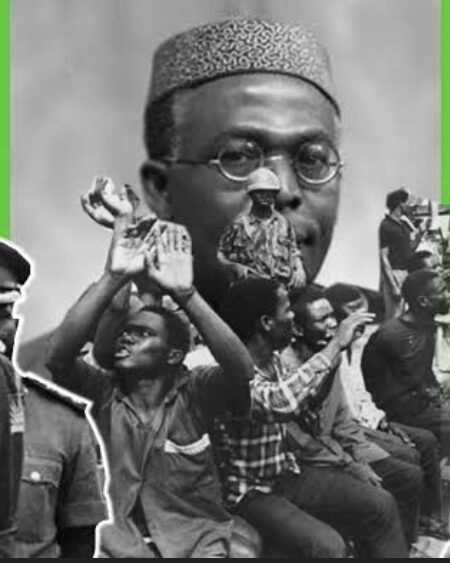
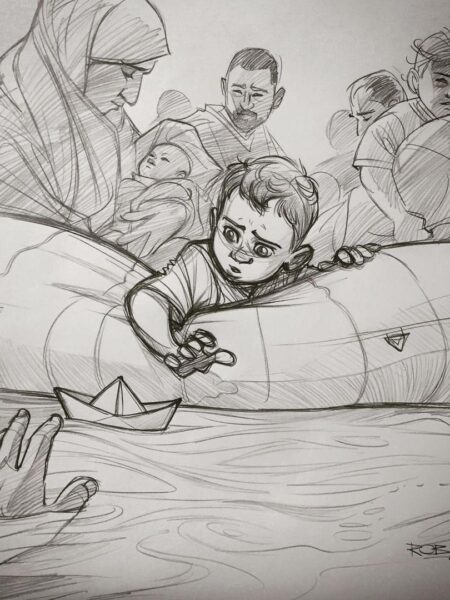
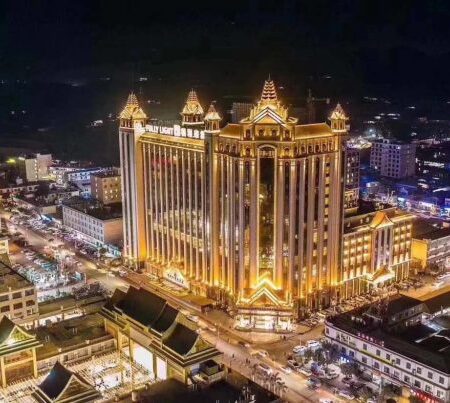
Hello, I stumbled across your WW2 history. I also had a German grand father that was MIA in Breslau at the end of the war. Always wondered if he was killed , captured or who knows what. The 2 stories were very interesting to read, thanks for making them available to all of us.
Thank you Elli for this thorough and precise presentation of those two viewpoints. The two stories were really interesting, well detailed and nicely told. Your presentation was really enjoyable to read especially with your dynamic layout and the amount of documents and photos enriching the story.